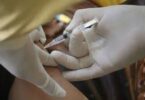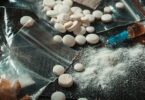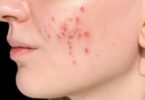Monitoring Desk
WASHINGTON: Prostate cancer is the second most common cancer among men in the United States. One out of every nine men will be diagnosed with prostate cancer in his lifetime, according to the Prostate Cancer Foundation. Since there are no early warning signs for this disease that kills 30,000 annually, experts recommend that men undergo a prostate-specific antigen (PSA) test to determine if they have the disease and if it needs to be treated.
The PCF recommends screening as early as 40 years of age for men who have a family history of the disease but for the average male, screening can begin at age 50. According to Healthline, the risk of developing prostate cancer increases with age. Approximately 60% of all prostate cancers diagnosed in American men are found in those 65 years or older.
While there is no proven way to prevent prostate cancer, according to the Mayo Clinic it is widely accepted that many steps to improve overall health will also help lower the risk.
Here are some tips:
1. Eat more vegetables. According to AARP, eating more cooked tomatoes has been a longtime recommendation because tomatoes contain lycopene, which has been shown to reduce tumor growth. However, it is important to incorporate a greater variety of fruits and vegetables into the diet. Dark, leafy greens like kale and cruciferous vegetables such as broccoli and cabbage are particularly helpful.
2. Consume less red meat. Experts at AARP says that red meat, particularly when it is cooked well-done, is full of carcinogens. Instead, for protein, try substituting fish for red meat. It is loaded with omega-3 fatty acids, which reduce inflammation and slow tumor growth.
3. Drink coffee. A 2011 study showed that men who drink at least six cups of coffee daily, with or without caffeine, have a 20 percent lower risk of developing prostate cancer.
4. Maintain a healthy weight. Obese men with a body mass index (BMI) of 30 or higher have an increased risk of prostate cancer, the Mayo Clinic says. Reduce calories and exercise frequently to get to a healthy weight.
5. Get plenty of vitamin D. Mounting research shows that a vitamin D deficiency can contribute to the development of many cancers, says noted best-selling author Dr. Joel Fuhrman. He writes that regular exposure to the sun can help but is often not enough. He recommends supplementing if low vitamin D levels have been confirmed by a blood test.
6. Eat garlic. According to the Institute for Natural Healing (INH), this allium vegetable, along with its cousins onions, chives, and leeks, decreases your risk for prostate cancer. However, research shows that garlic offers the best protection. You can decrease your risk of prostate cancer by 18 percent by eating alliums, but if you eat garlic, you may reduce your risk by an impressive 38 percent. While experts say that eating fresh, raw garlic is best, you can also opt for an aged, odorless garlic supplement such as Kyolic.
7. Ejaculate regularly. Having sex or masturbating frequently may help with prostate cancer prevention. According to AARP, a large study showed that men who ejaculate at least 21 times each month had a 33 percent lower risk of developing prostate cancer when compared with men who ejaculated only four to seven times a month.
Courtesy: (Newsmax)






